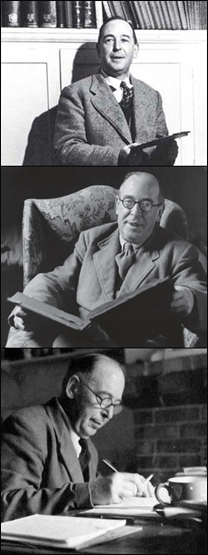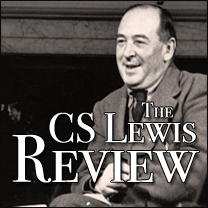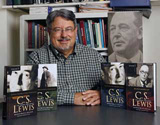AUTOBIOGRAPHY
A Grief Observed (1961)
Surprised by Joy: The Shape of My Early Life (1955)
- 1. The Great Divorce. Lewis’s mentor, George MacDonald, takes him a tour of hell-and heaven.
-
- 2. The Problem of Pain. Lewis helpfully defines the relevance of suffering and of hell to human life.
-
- 3. The Abolition of Man. Lewis’s dead-on prophecy of the demise of objective value in a postmodern, Western world.
-
- 4. Mere Christianity. The most lucid and thoughtful inquiry into orthodox Christianity in the 20th Century.
-
- 5. Till We Have Faces. Lewis’s own favorite work; how can it not be on this list, despite its difficulty and departure from his other works?
-
-
- THE FIVE BEST WORKS ABOUT C. S. LEWIS
- 1. The Company They Keep, Diana Glyer. The most comprehensive and readable treatment of the Inklings to date.
-
- 2. Planet Narnia, Michael Ward. An insightful look at the mythological imagination and cultural context in which Lewis wrote.
-
- 3. C. S. Lewis: Poet, Don King. The epitome of what all Lewis scholarship should look like–a scholarly yet accessible treatment of Lewis’s underrrated poetry
-
- 4. The Taste for the Other, Gilbert Meilaender. A brilliant treatment of the social and ethical implications of CSL’s thought.
-
- 5. C. S. Lewis for the Third Millennium, Peter Kreeft. One of many well-informed and incisive books about Lewis by his most helpful living interpreter.
THE FIVE WORST WORKS ABOUT C. S. LEWIS
- 1. C. S. Lewis: A Biography, A. N. Wilson. The chronology may be the only thing right in this pedantic manual of ill-conceived character assassination.
-
- 2. C. S. Lewis and the Search for Rational Religion, John Beversluis. The most charitable thing that can be said here is that it is out of print and will likely remain such.
-
- 3. The Skeleton in the Closet, David Holbrook. A thoroughly unconvincing Freudian interpretation of everything Lewis ever said or did, a horoscope not a monograph.
-
- 4. C. S. Lewis on Scripture, Michael Christensen. This early, labored work about Lewis’s views of inerrancy proves he couldn’t have been a good Southern Baptist; so?
-
- 5. Shadowlands, William Nicholson. How could a well-meaning man have gotten so much wrongheadedness into just one script?
Back to top




